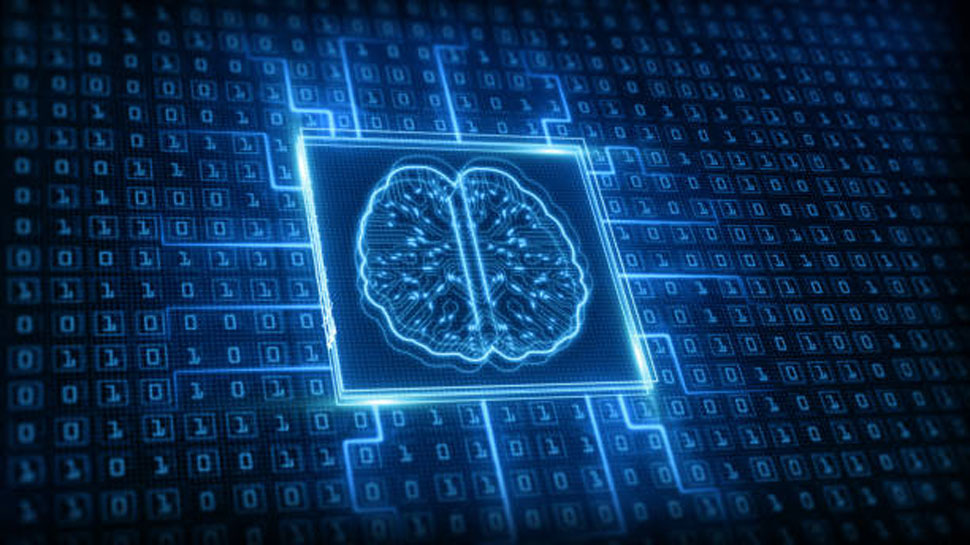) |
| source: Google |
The human brain, with its astounding complexity, has always been a subject of fascination and exploration. In recent years, a new frontier has emerged in neuroscience and technology — brain hacking. This phenomenon refers to the manipulation of cognitive processes and brain functions through various techniques and tools. As our understanding of the brain advances and technology becomes more sophisticated, the potential for brain hacking raises important questions about ethics, privacy, and the boundaries of human cognition.
Understanding the Human Brain: To comprehend brain hacking, it is crucial to grasp the fundamental workings of the human brain. The brain, composed of billions of neurons and intricate neural networks, governs our thoughts, emotions, and behaviors. Neuroplasticity, the brain's ability to reorganize and form new connections, underlies its remarkable adaptability. This quality plays a significant role in brain hacking, as it allows for the reshaping of neural pathways through external influences.
Techniques and Tools of Brain Hacking: Brain hacking employs a range of techniques and tools, both psychological and technological. Psychological manipulation techniques, such as social engineering and persuasion strategies, exploit cognitive biases and social dynamics to influence individuals' thoughts and actions. By leveraging psychological vulnerabilities, brain hackers can shape behavior, beliefs, and decisions.
Technological interventions are another avenue for brain hacking. Neurostimulation techniques, such as transcranial magnetic stimulation and deep brain stimulation, deliver targeted electrical impulses to specific brain regions, modulating neural activity and potentially altering cognition and behavior. Brain-computer interfaces (BCIs) enable direct communication between the brain and external devices, allowing for cognitive manipulation through feedback loops and data analysis.
The Dark Side of Brain Hacking: While brain hacking presents intriguing possibilities, it also raises significant concerns. Ethical considerations come to the forefront, as cognitive manipulation may infringe upon personal autonomy and consent. Privacy and security risks arise when personal data, neural patterns, and cognitive states become accessible and vulnerable to exploitation. Additionally, the potential for brain hacking to be used maliciously, such as for coercion or manipulation on a large scale, poses serious societal risks.
Positive Applications of Brain Hacking: Despite the risks, brain hacking also holds promise for positive applications. In therapeutic interventions, brain hacking techniques can be harnessed to treat mental health disorders, such as depression or addiction. By influencing neural activity and rewiring dysfunctional circuits, these approaches offer hope for those struggling with neurological conditions. Furthermore, brain hacking opens doors for enhancing cognitive abilities, improving memory, focus, and learning capabilities, potentially benefiting individuals and society as a whole.
 |
| source: google |
Advancements in neuroscientific research are another positive outcome of brain hacking. By unraveling the complexities of the brain through cognitive manipulation, scientists gain valuable insights into how the mind works. This knowledge can contribute to the development of innovative treatments, understanding neurodevelopmental disorders, and unlocking the full potential of human intelligence.
Safeguarding Against Brain Hacking: To ensure responsible and ethical use of brain hacking techniques, it is essential to establish regulations and policies that protect individuals' rights and privacy. Governments, research institutions, and technology companies must collaborate to create robust frameworks that address the risks associated with cognitive manipulation. Public education on brain hacking and its implications can empower individuals to make informed decisions and recognize potential manipulations. Moreover, bolstering cybersecurity measures becomes crucial to safeguarding neural data and preventing unauthorized access.
Conclusion: Brain hacking represents a captivating frontier at the intersection of neuroscience and technology. While it offers the potential for positive applications in therapeutics and scientific advancements, it also raises profound ethical concerns and societal risks. Striking a balance between harnessing the power of brain hacking and ensuring responsible use will be critical as we navigate this new cognitive landscape. By fostering transparency, ethical guidelines, and public awareness
peoples also search for
- "The Neurological Frontier: Unveiling the Power of Brain Hacking"
- "Unlocking the Mind: The Rise of Brain Hacking"
- "Mastering the Cognitive Matrix: Exploring the World of Brain Hacking"
- "Hacking the Brain: The Next Evolution in Human Potential"
- "Manipulating Minds: The Intriguing World of Brain Hacking"
- "Unleashing the Power Within: The Science and Ethics of Brain Hacking"
- "Breaking Boundaries: The Art and Science of Cognitive Manipulation"
- "The Cognitive Revolution: Exploring the Frontiers of Brain Hacking"
- "From Science Fiction to Reality: Decoding the Secrets of Brain Hacking"
- "Molding the Mind: The Promises and Perils of Brain Hacking"
Post a Comment